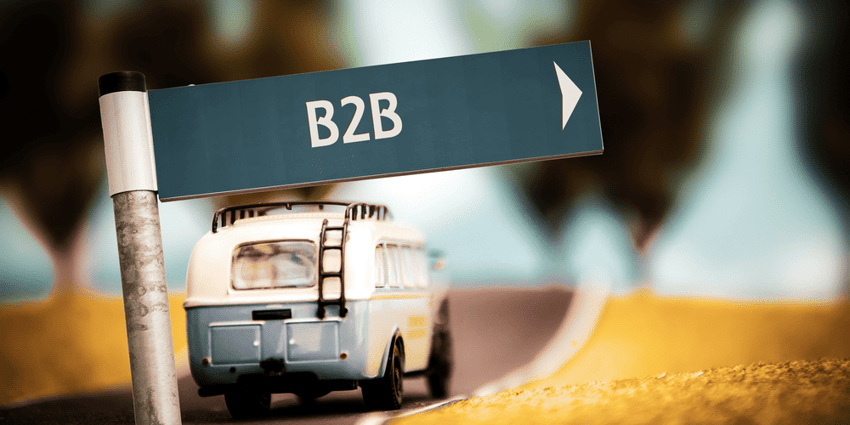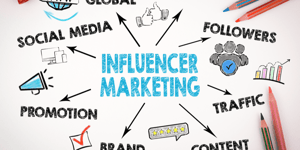B2B vs. B2C
Before we dive into the meat of this article, we need to understand exactly what B2B and B2C truly mean.
When we think of eCommerce, we typically have B2C transactions in mind. B2C stands for "business to consumer". A B2C eCommerce transaction will always be with the end user who buys a product for their personal use. An example of this would be a consumer who purchases the new iPhone from JB Hi-Fi.
B2B, on the other hand, is a term used when one business makes a commercial transaction with another business. A B2B eCommerce transaction could be between manufactures, wholesalers and retailers for products and services. An example of this would be when a business buys a product from their supplier or vendor on a website like Alibaba.
The underlying motivation
Right off the bat, motivations for business purchases and personal purchases are going to be different. Of course there's going to be some overlap, but for the most part B2C customers are purchasing with the desire to improve their lives in some way, while B2B customers are purchasing with the goal of improving their business and (ultimately) the bottom line.
The most important thing to note?
In both cases, you're selling to real people. These people all have fears, needs and wants that you can appeal to.
The decision making process
The decision making process can look very different when you're making decisions for your personal life or for your business.
While both customers will need to see an immediate appeal to your ad or product, B2B customers are going to take significantly longer time conducting research before purchasing. Remember, this is about their business, so the stakes are high.
B2C customers want to see everything they need to know as quickly as possible. These purchases tend to occur on more of a whim than with B2B customers. Think about it, how much research do you really put into purchasing a new Xbox game? Because of the shortened research process in B2C, social proof on ads can weigh slightly more heavily here.
Build personal relationships
Business deals between organisations are more than just one-time transactions, they are long-term partnerships. While consumers look for products to fulfil their immediate need, businesses rely on other businesses to succeed.
What's the benefit of this?
Increased revenue for all stakeholders involved. This ability to connect with your targeted audience allows you to separate your business from competitors and builds your brand. And because of the importance of repeat and referral business, developing these personal relationships can make or break a business.
The time it takes to convert
B2B transactions are more complex and time-consuming, as opposed to B2C eCommerce where shoppers tend to purchase spontaneously. B2B sellers deal with smaller lead pools, and more contracts, quotes and purchase orders. People are more likely to make impulsive decisions on personal purchases than they are on business ones. This is because changing business purchases is often more complicated and can require the entire team to learn new software.
Size of the audience
B2C eCommerce is usually targeted at a specific segment of the general public. While you may usually target the decision maker of the household, you can really target anyone that's more likely to convert. For this reason, B2C eCommerce websites must be built to handle a large volume of traffic. It's important for these websites to focus on security of payment information for consumers.
B2B eCommerce is only targeted at a very specific type of business, and on top of this, very specific individuals within the business - the decision makers. You need to get your ad in front of these specific people, and targeting by job title in Facebook Ads can help with that.
Website differences
While design is important in both the B2B and B2C realms, there are some subtle difficulties between both types of websites. As we previously mentioned, B2C customers are motivated by their emotions and desire to make the buying decision. So, B2C eCommerce retailers should be working on making their website look visually stunning in line with their business personas.
B2B eCommerce websites need to be a lot more factual in nature and geared to providing relevant information to their users in an organized and easily accessible manner. A quality site search is also very important when it comes to a B2B eCommerce site. They may find that case studies and video demonstrations provide the educational information that buyers are looking for.
Marketing approach
The marketing approach across B2B and B2C eCommerce is very different. In B2C, conversion is king. That's why you see a lot of businesses invest heavily into paid ads, content marketing and (nowadays) even influencer marketing.
In the B2B marketing world, the focus is on generating leads. That's why you'll often find B2B websites asking for contact information, so that their sales team can touch base with them. This is also helpful because not all customers are given the same pricing structure. Buyers depend on personalised product catalogs, price lists and shipping options. They also expect specific discounts for their company, based on negotiated terms.
Pricing strategy
In B2C eCommerce, the average order value tends to be fairly small compared to B2B. This makes sense, given that B2C retailers often generate hundreds if not thousands of sales and overall higher traffic numbers to their website. To handle this demand on a large scale, the pricing structure is more straightforward, and typically all consumers get the same price.
When it comes to B2B eCommerce, average orders tend to be much larger. A couple of customers could actuate to millions if not billions in revenue. For the most part, their pricing structure is negotiated and based on some sort of agreement with the company. The price that a business gets depends on a variety of factors including their buying history.










 Facebook
Facebook Twitter
Twitter Instagram
Instagram Linked In
Linked In YouTube
YouTube